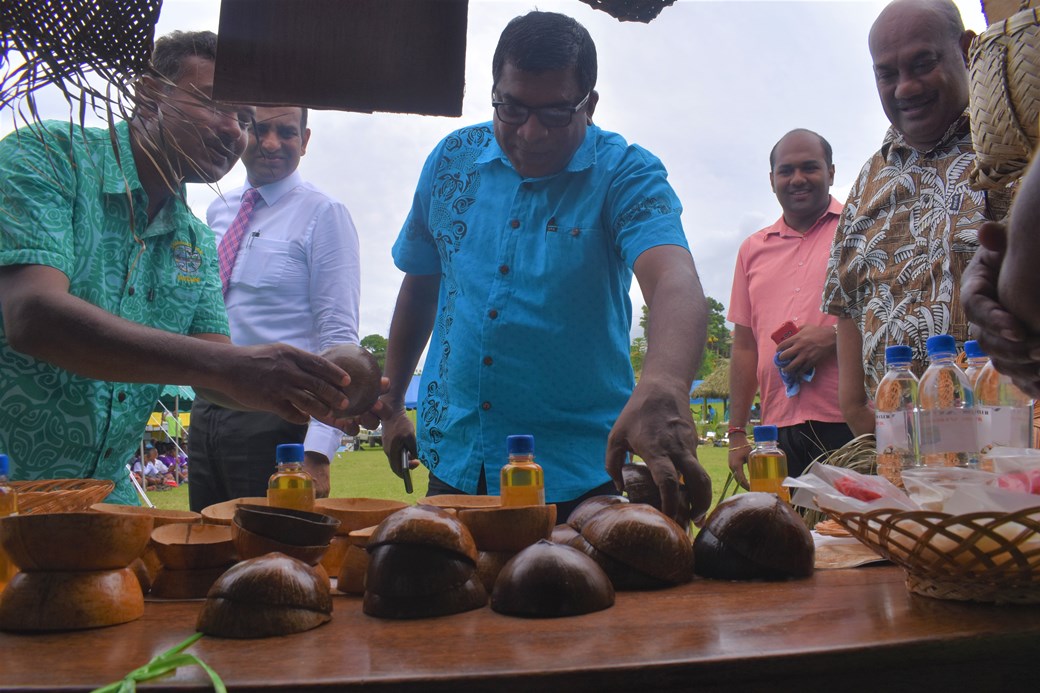Aggressive Intervention Geared towards Coconut Industry
March 23, 2019

An aggressive 10-year intervention program will be implemented by the Ministry of Agriculture in its efforts to develop the coconut industry through strategically placed stratagems.
This was highlighted by the Minister for Agriculture, Rural and Maritime Development, Waterways and Environment Hon. Dr. Mahendra Reddy during the recent National Coconut Day celebrations in Wairiki, Taveuni.
With continued commitment shown by the Fijian Government on the coconut industry through increased budgetary allocations, Hon. Reddy advised farmers, stakeholders and members of the public of Government’s intent to realize the industry’s full potential.
“The Ministry over the years has provided support through infrastructure development and the provision of technical advisory services to stakeholders,” he said.
“Government, through the Ministry of Agriculture, will focus to provide aggressive intervention in the coming 10 years through strategies,” he added.
Hon. Reddy further elaborated the three strategies as being; Strategy 1: Increased Coconut Production, Farm Productivity, and Farmers Income, Strategy 2: Promote Value-Added Product Processing and Marketing and Strategy 3: Promote Capacity Building and Provide Institutional Support to Ensure Sustainability of Development Intervention.
Strategy 1 would involve a strengthened and coordinated aggressive replanting campaign (1.5 million trees in the next 10 years with 150,000 trees planted per year), in order to address 50% of the current 40% senile trees. Continued emphasis placed more on Breeding/Research for superior varieties through the revival of the Gene bank at Mua Research Station, with hybridization starting this year at Mua Research Station.
Also as part of this strategy, improving farm productivity per unit area through promoting Coconut Base Farming System (Dalo, Yaqona, Livestock under Coconut) would be extensively promoted, with more efforts placed on Pest & Disease Control/Management with the aim to reduce the current 30% infestation to a more manageable level below the economic threshold.
Whereas strategy 2 would focus on the continuous provision of skills-training on Virgin Coconut Oil (VCO) and other high-value by-products to Farmers/Entrepreneurs/Small Micro-Enterprises (SME’s)
The third strategy would involve the strengthening of extension work on Coconuts through the recruitment of Commodity officers, which has seen the appointment of 1 officer already, strengthened awareness campaigns on Coconut, providing a conducive policy environment to encourage joint ventures, promote local and foreign investment and public-private partnership and the formation of the Coconut Industry Strategic Plan and Roadmap.
-Ends-
